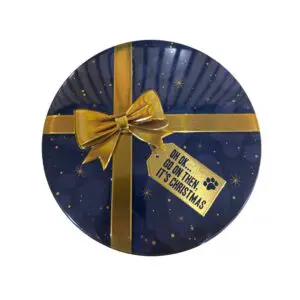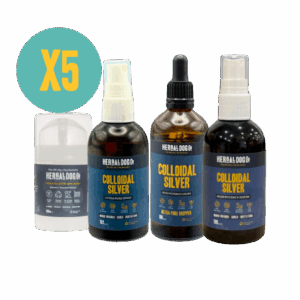Emotional and psychological issues in humans are called exactly that. The same problems in dogs are called ‘behavioural’ problems. That’s because we have no direct knowledge of what is going on in their heads, unlike us (‘Tell me about your childhood’, or, ‘How does that make you feel’, etc. from or psychologists). Humans have to watch dogs’ behaviour to interpret as best we can; hence, dog psychologists are called ‘behaviourists’.
Conventional vets use behavioural modification techniques and pharmaceuticals to try to address the many behavioural issues we see in our dogs. Herbalists and vets trained in herbal medicine similarly use a group of herbs called the ‘nervines’.
Nervines come in five main groups: Anxiolytics, Hypnotics, Relaxants, Stimulants and finally, Tonics.
‘Anxiolytic’ herbs like oats, Avena sativa, or Passiflora incarnata, work on the nervous system to calm mental agitation and emotional upset. They can reduce anxiety symptoms associated with a broader range of conditions from separation anxiety to travel agitation.
‘Hypnotic’ herbs are those that induce or help to induce sleep. They may have muscle relaxing and sedating properties. Hypnotics help patients sleep when distressed with pain or anxiety. Examples would include chamomile flowers, Matricaria recutita or Tilia platyphyllos, lime flowers.
Relaxant herbs are interesting. We prescribe them in times of physical or psychological stress. They help to address tension, anxiety or stress components of any disease. Many are antispasmodic to muscles, and some have herbal ‘hypnotic’ traits. Relaxant herbs include Melissa officinalis, lemon balm, and Borago officinalis, borage herb.
Stimulants are the opposite of the three previous nervines; they stimulate and energise. They’re not used much these days as our dogs’ lives tend to be very stimulated and stressful, but can be of use when a gentle pep is required. Coffee arabica is the stimulant that we all know but rarely used in canine herbal preparations. Rosemary and Mint are stimulants more commonly found in herbal preparations for gut and circulation effects.
In the fifth group, we have the herbal nervine ‘tonics’. The old name is ‘Trophorestoratives’, which gives an idea of their use; to nurture and help heal the mind and nervous system. They are useful in cases of shock and damaged nervous tissue, irrespective of the cause. Motherwort, Leonurus cardiaca is very beneficial and healing for nervous and, as the name suggests, heart tissue. Scutellaria lateriflora, skullcap herb is a more commonly known anxiolytic herb with also has nervous tonic qualities.
The Nervines have a lot of cross-over in their effects. That is, anxiolytics can be hypnotics and hypnotics can be trophorestorative. This makes selection for the animal herbalist easier. Still, care has to be taken that the right balance of these five herb groups is selected.
Traditional combinations that you might be familiar with are Skullcap and Valerian as a veterinary anti-epileptic or anxiolytic, or St. John’s Wort and Lemon Balm for mild to moderate depression in people. To find out about the use of herbs for behavioural issues in your dogs, contact the BAVH, the British Association of Veterinary Herbalists at www.herbalvets.org.uk. You can also talk to your vet or herb professional about the use of herbal preparations obtained from a knowledgeable and reliable source.
https://herbaldogco.com/product/tranquilla/
https://herbaldogco.com/product/herbal-dog-co-all-natural-tranquilla-powder/





